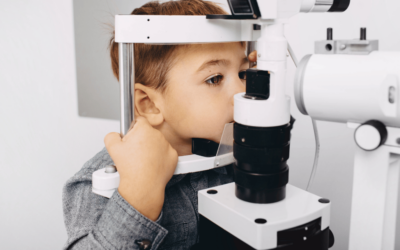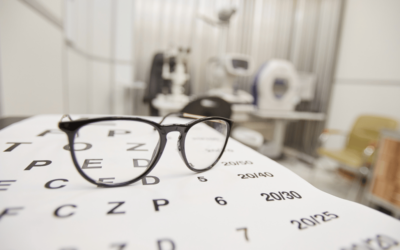We all experience dry, itchy eyes at some point in our lives. Usually, these issues go away by themselves or with the use of over-the-counter eye drops. However, itching, burning, and redness can sometimes become chronic, affecting our ability to perform daily tasks.
If your eyes are constantly itchy and dry, there’s a good chance you have dry eye. This condition happens when you don’t have enough tears or when your tears evaporate too quickly. In this post, we’ll talk about what causes dry eye, how to manage the symptoms, and when it’s time to reach out to an eye doctor for professional help.
What causes dry eye?
There are several reasons why your eyes might get dry. One common factor is age—our tear production tends to decrease as we get older. Certain medical conditions, like lupus, thyroid disease, and rheumatoid arthritis, can also cause dryness. Additionally, environmental factors such as wind, smoke, or dry climates can dry out your eyes. Even some medications like antihistamines, decongestants, or antidepressants can contribute to dry eye. Also, women are more likely to get dry eye because of the hormonal changes that occur throughout a woman’s life.
How to manage dry eye
Eye drops, also known as artificial tears, can help relieve dry eyes. However, not all eye drops are the same. Some over-the-counter drops promising to reduce redness can make dry eye symptoms worse. Make sure to read the label and look for drops that lubricate the eyes and are free of preservatives.
Warm compresses are also helpful in boosting tear production. In some cases, simple lifestyle changes can help ease symptoms. These changes may include taking frequent breaks from screens, using a humidifier, and avoiding smoke and wind. Finally, you could try adding more omega-3 fatty acids to your diet, either through supplements or by eating more fish, flaxseed, and chia seeds.
When to see an eye doctor
If your dry eye symptoms persist or get worse, it’s time to see our eye doctor for an eye exam in Tinley Park, Illinois. Other signs to watch out for are blurry vision, sensitivity to light, watery eyes, and a feeling like there’s something in your eye. An eye doctor can run tests to find out what’s causing your dry eye syndrome. They might recommend prescription eye drops, tiny tear duct plugs to slow down tear drainage, or light therapy.
Conclusion
Dry eye is a common condition that can cause serious discomfort and affect your quality of life. Knowing the causes and ways to manage symptoms will help you maintain good eye health. If dry eye is bothering you, it’s important to reach out to a professional. At Walter Eye Clinic in Tinley Park, Illinois, our eye doctors specialize in diagnosing and treating dry eye. They’ll evaluate your symptoms and suggest the best treatment for you. Schedule an appointment with us today and start feeling better soon!



